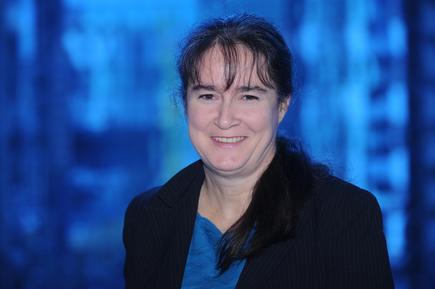
Unlike other countries, where the CEO is increasingly being recognised as the CIO’s primary advocate, New Zealand CIOs still see the CFO as their biggest supporter, notes report author Louise Francis, IT spending research manager, IDC New Zealand,.
When asked who are their biggest advocates, 34 per cent of IT respondents cited the CFO, compared with 28 per cent from line of business (LOB) respondents, notes Francis on the key points of the report The 2014 New Zealand C-Suite Survey: Closing the CIO/CXO Gap.
Just over a quarter (27 per cent) of IT respondents cited the CEO as the biggest advocate of IT, compared with 43 per cent of their LOB colleagues. Nineteen per cent of IT respondents cited the chief operating officer as their biggest advocate, while 18 per cent LOB respondents cited this was the case.
Francis notes this could be the reason CIOs are still focusing on maintenance, cost control and business as usual “rather than transformation projects that the rest of the business thinks they should be getting on with”.
These IT hygiene issues should be addressed prior to any conversations with C-suite colleagues, she says. This will ensure that during these meetings, the focus is on “what IT is doing to grow the business, not how IT is going to increase network resilience".
The report suggests perception is the biggest challenge for ICT value, with CIOs and their executive colleagues listing different challenges and priorities in leveraging ICT to drive business forward.
Read more: Mobility and security deployment should go hand-in-hand: Adam Dodds, IDC New Zealand

IT hygiene or maintenance issues should be addressed prior to any conversations with C-suite colleagues.
CIOs, for instance, cite the following as the top three challenges: lack of understanding of new technologies, lack of required skills to effective execute ICT, and lack of ICT budget for the business requirements it needs to support.
Read more: Movers and shakers: Sean White of Masterpet and Trevor Leybourne of MYOB
Their line of business colleagues, however, see lack of business unit stakeholders’ buy-in or support from CEO and senior executives, governance and regulations limitations and restrictions; and growing complexity in IT environment and varied user requirements as the top challenges.
The LOB leaders cited lack of thought leadership in ICT strategy and roadmap as the fourth biggest challenge.
The survey is part of the Asia Pacific Suite survey covering 1421 executives, with 180 coming from New Zealand. By respondents, 66 per cent hold IT roles and the rest include CEOs, CFOs, CMOs and line of business managers.
A third of the New Zealand organisations come from government, education and healthcare.
Read more: Customer obsessed businesses use co-location, strategy co-creation and hybrid skills: Forrester
It was conducted in March to April this year, and provides insights into the C-suite’s attitudes towards emerging technologies, investment drivers and barriers to adoption within 480 organisations across the Asia Pacific.
Francis notes how the survey finds the C-suite members agree on where the IT investment focus should be.
These are in cloud, big data analytics, social (including video conferencing) and customer experience (analytics and digital media capabilities).
Read more: Doing business with Jason Poyner of Deptive
Optimisers, opportunists, followers, creators, disruptors
When asked the role ICT plays in the organisation in the upcoming year, the greatest number (24 per cent) cited 'optimisers', meaning ICT will continue to primarily drive productivity gains and optimise business processes.
This is followed by opportunists (23 per cent) meaning ICT will change the business, create new workflows, customer engagement touch points and operating models; and followers (21 per cent), where the organisation will continue to use ICT as work//business tool, following the footsteps of the mainstream market.
The rest see ICT playing the role of creators (17 per cent), creating new areas of opportunities and allowing the organisation to enter new markets. Fourteen percent of respondents see ICT as disruptors, where it will create new challenges and rethink or redo the organisation in order to remain relevant.
Comparing the results with Australia, Francis notes Australia has much higher levels of disruptors (19 per cent) and fewer followers (12 per cent). New Zealand has higher numbers of opportunities and creators.
IDC analyst Louise Francis will write more about the results of the The 2014 New Zealand C-Suite Survey: Closing the CIO/CXO Gap in the upcoming issue of CIO New Zealand.
Join the CIO New Zealand group on LinkedIn. The group is open to CIOs, IT Directors, COOs, CTOs and senior IT managers.
